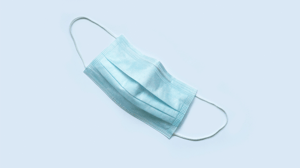
Important Update for Members on COVID-19 Reporting and Mask Use
Another week has gone by and more COVID-19 information has come to light. Living and working in a pandemic means keeping you up to date on the information that is provided to us. It sometimes feels like the information is like New England weather; if you don’t like what you hear wait 5 minutes! Here is the latest info to keep you up to date.
PARTNER SPOTLIGHT
Dealer Management System, Computer Technology, Media/Advertising, Automotive Auction, F & I/Aftermarket Products, Automotive Technology Training & Compliance
 A NHADA Gold PARTNER
A NHADA Gold PARTNERComputer Technology, Automotive Shop Equipment, Environmental Services
 A NHADA Platinum PARTNER
A NHADA Platinum PARTNERF & I/Aftermarket Products, Automotive Technology Training & Compliance, Environmental Services
.png?width=150&name=corp_logo_horz_on_light_with_trademark_symbol_1200w%20(002).png) A NHADA Diamond PARTNER
A NHADA Diamond PARTNERLast week we provided members with an update as the state transitioned from Safer at Home 2.0 to the Universal Best Practices guidelines. Most of the guide is pretty straight-forward but one section left the reader a bit confused to its interpretation. The mentioned section is probably the most important section as it does have a “requirement” unlike the rest of the document which uses words like: could, should, and encouraged.
We made a call to the NH DHHS DPHS Bureau of Infectious Disease Control on our members behalf for some clarification; here is a summary of what we now know of the requirement.
Section 12 Public Health Contact Tracing, Isolation, and Quarantine
In this section it is explained that contact tracing, isolation, and quarantine, should be a collaborative effort between the New Hampshire Division of Public Health Services (DPHS) Bureau of Infectious Disease Control (BIDC) and the business or organization where the COVID-19 exposure occurred. Section 12a goes on to further explain that COVID-19 exposures at businesses and organizations should be promptly reported to the state and that reporting is a requirement per RSA141-C.
Our call to the state clarified that employers and organizations are required to make this call if they learn of an employee, customer, vendor, or volunteer who has tested positive for COVID-19. The word “should” in the sentence is superseded by the requirement per the RSA.
Per RSA 141-C reporting of infectious diseases and furnishing requested infectious disease related business information (including patron and employee information) is a requirement. Every positive COVID-19 case involving an employee, customer, vendor or volunteer in your business or organization must be reported by calling NH DHHS DPHS Bureau of Infectious Disease Control at 603-271-4496.
Mask wearing – New CDC guidance
The CDC has now put out information regarding fully vaccinated people not needing to wear masks both inside and outside. This information came as a bit of a surprise last week to state officials involved in the management of the COVID-19 pandemic in NH. When asked about the changes last week, Dr. Benjamin Chan said that he had concern about pulling back and if now is the right time to do so. He had not had the opportunity to review the new recommendations as they were released to the media prior to the medical community. Since there is still widespread community transmission, he verbalized concern over this especially for businesses and organizations in NH.
The new guide includes this key point for fully vaccinated individuals:
Fully vaccinated individuals may resume activities without wearing masks or physically distancing, except where required by federal, state, local, tribal, or territorial laws, rules and regulations, including local business and workplace guidance
Our takeaway from this is that businesses and organizations can still enforce what they feel is safe for their employees and customers. NHADA feels that more information is needed before we adopt the CDC’s recommendations for mask use. When an employee, customer, vendor, or volunteer enters your business you do not know their vaccination status. To assume that they are vaccinated because they are not wearing a mask is an assumption that should not be made.
A large portion of our population is eligible to be vaccinated or already are vaccinated. However, we need to remember there will always be some that cannot or will not be vaccinated. We certainly want our focus in the workplace to be keeping all employees safe despite these reasons. Masks are a very important part of the layered mitigation process against COVID-19. The time to put the masks away is coming but may not be now.
Please reach out with any questions at 800-852-3372 or email Marta at msilakka@nhada.com.



















.png?width=150&name=Ally_Final%20Logos%20and%20Pairings_11.14.2018-01%20(2).png)


-2.png?width=150&name=Wipfli%20Logo%20Blue%20RGB%20(1)-2.png)


.jpg?width=150&name=NHADA_Partner_FTR_Img_NHADA_Insurance%20(1).jpg)


.jpg?width=150&name=NHADA_Partner_FTR_Img_JMA(1).jpg)

